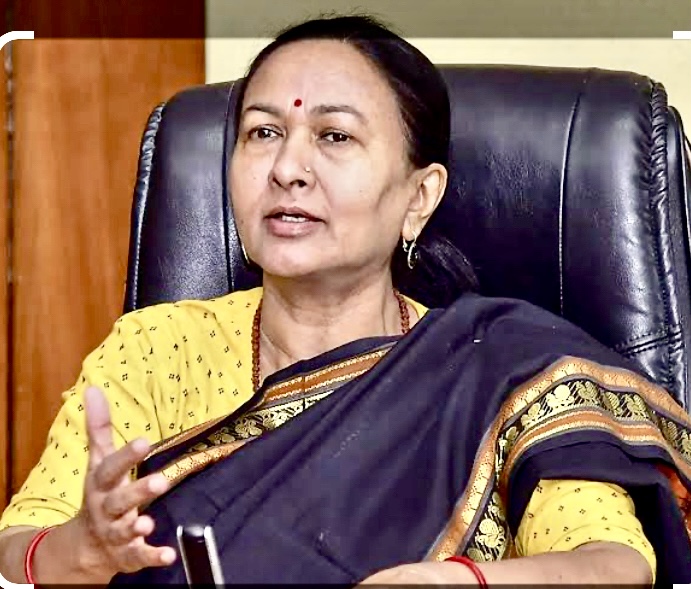Radha Raturi, a 1988-batch Indian Administrative Service (IAS) officer became the first woman chief secretary of Uttarakhand. She replaced her batchmate Sukhbir Singh Sandhu whose tenure ended today after an extension of six months.
Soon after assuming office, Raturi said the biggest challenge before the state government is to enact legislation on the Uniform Civil Code.
Raturi said the expert committee on UCC will submit its draft to the chief minister on February 2 and a session of the state assembly is starting on February 5, she said. “Chief secretaries are team leaders. The entire bureaucracy has to work as a team,” she said.
During her long administrative career, Raturi has held several important positions. She has worked as a bureaucrat both in undivided Uttar Pradesh and Uttarakhand, which came into existence in November 2000. Her husband Anil Raturi, an Indian Police Service (IPS) officer, retired in November 2020 as the Uttarakhand director general of police. Raturi is due to retire in March 2024 if she doesn't get extension. But due to general elections, she is likely to get extension as her predecessor who got six months extension.
This is for the first time in the history of Uttrakhand that both husband-wife – Anil Raturi and Radha Raturi held top positions in police and administration.
Radha Raturi was initially given Madhya Pradesh cadre. But she decided to change her cadre to then undivided Uttar Pradesh on the basis of her marriage with IPS Anil Raturi, who was posted in Uttar Pradesh.
Radha Raturi cleared UPSC thrice
Radha Raturi had appeared thrice in Union Public Service Commission (UPSC) examination and succeeded in every attempt. She appeared for the first time in the UPSC examination on the advice of her father, who was a civil servant, and made it to the Indian Information Service. But she decided to sit for the exam again.Clearing the exam again in 1987, she made it to the Indian Police Service and went to Hyderabad for training where she met her husband Anil Raturi, also an IPS officer of the 1987 batch. However, her father advised her to appear for the exam for a third time to get into the Indian Administrative Service.
Having a passion for writing as a student, she wanted to become a journalist. She was on the editorial board of her college magazine in the early 1980s and its editor for two years. After completing her graduation in history from Mumbai in 1985, she did a course in mass communication and worked briefly as a journalist in the Bombay edition of The Indian Express and then for India Today.

The BuckStopper, run by a group of seasoned journalists, holds the powerful accountable. The buck stops with them, as they cannot shrug off their official responsibilities.



